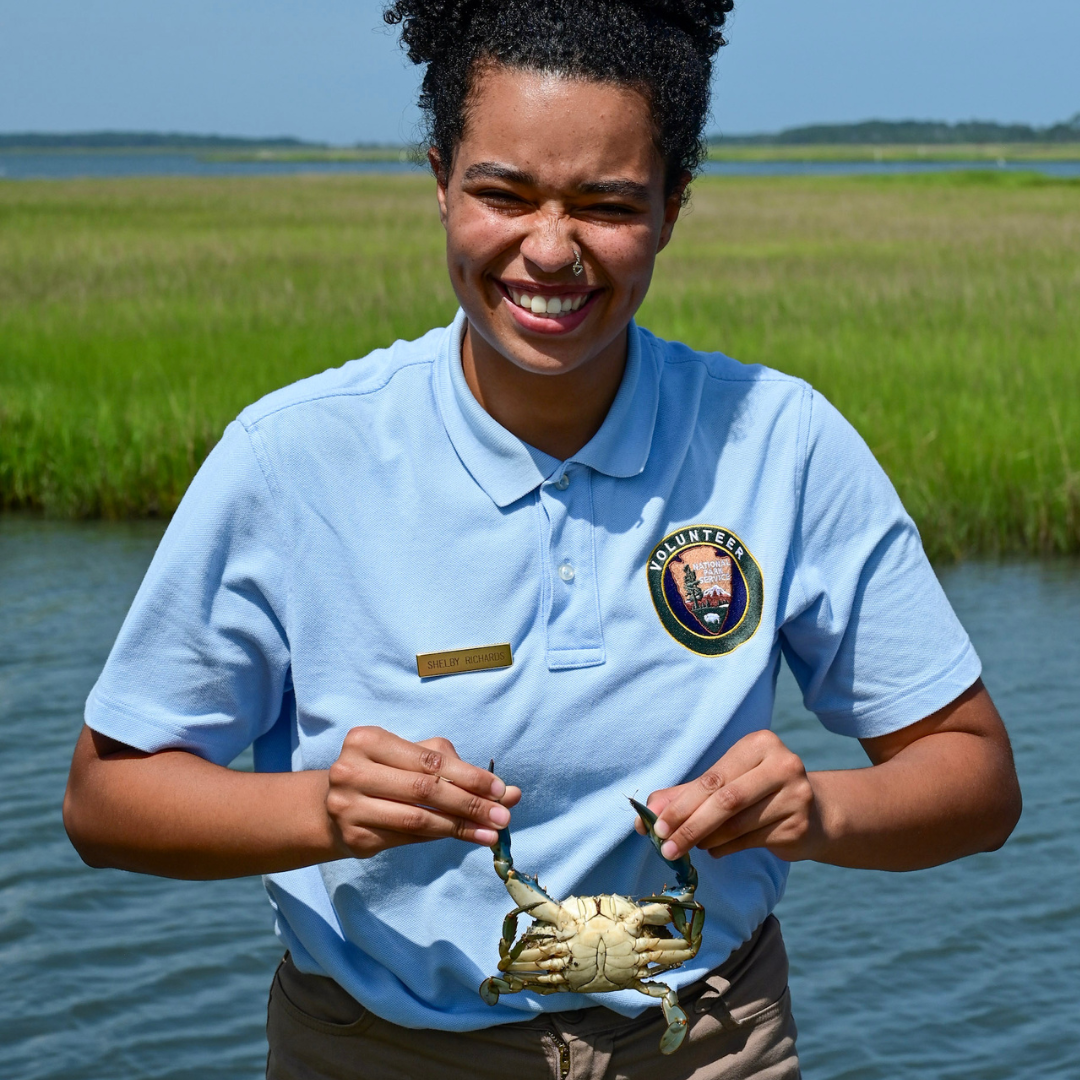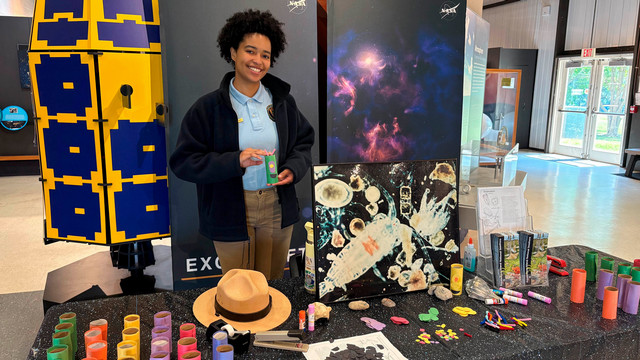A barrier island serves as a living, breathing classroom
Warm, sun-drenched days exploring the flora and fauna of virgin beaches, coastal bays, and salt marshes. This was how senior Shelby Richards spent her summer as a resource education intern with the Assateague Island National Seashore.
During her 12-weeks on Assateague, a pristine 37-mile-long barrier island off the coast of Maryland and Virginia, the leadership studies and Africana studies major gained invaluable experience with educational programming.
“I spent the first two weeks observing rangers leading programs for visitors, including 'creature features’ about the island’s animals, ‘plant rants’ about the plants, and ‘history mysteries’ about the history,” Richards said. “By the third week, I was researching and presenting my own programs.”
Her 15-minute programs were designed to appeal to people of all ages and backgrounds. She said she was particularly proud of her program on phytoplankton, a type of microscopic marine algae.
“I wanted the program to be interactive for kids, so I had them looking at the phytoplankton under microscopes,” she said. “They got really excited.”
Richards said she also enjoyed leading a program on barnacles. “Barnacles are filter feeders, so they are a good gauge of water health,” she said. “They attach their heads to a hard surface and use their feet, called cirri, to collect their food. When something is wrong with the water, something will be wrong with the filter feeders.”
At first, the senior worried that her lack of a strong science background would be problematic. But she said she adapted to meet the demands of her internship. “It helped me to lean on the rangers,” she said. “I asked a lot of questions and sat in on their programs.”

Shelby Richards holding a crab
She also assisted the rangers with crabbing demonstrations, showing people how to catch crabs using chicken necks on a string. During a kayak tour through the marshes, she served as the sweep, ensuring no one fell behind, while rangers shared their knowledge of stingrays, skates, birds, and the ways in which winds and water currents shape the island.
Richards grew up in Nashua, New Hampshire, far from Assateague, the Mid-Atlantic’s largest natural barrier island. But when she was about six, her family took its first of what became annual vacations to Chincoteague, a Virginia island adjacent to Assateague. During her first year at the University of Richmond, her family moved to Virginia’s Eastern Shore, a region comprising the southern end of the Delmarva Peninsula and 14 islands, including Chincoteague and southern Assateague.
Her internship provided an opportunity to learn more about the ecosystem of a place she has long loved. It also provided an opportunity to learn about the role of educators in spaces other than schools and universities. Richards said she plans to earn a PhD in Black or Africana studies, with the goal of pursing an education-focused career. The Jepson School of Leadership Studies awarded her a Burrus Fellowship to support her credit-bearing internship.
“My internship on Assateague reinforced my love of being an educator, especially in a nontraditional setting,” Richards said.

